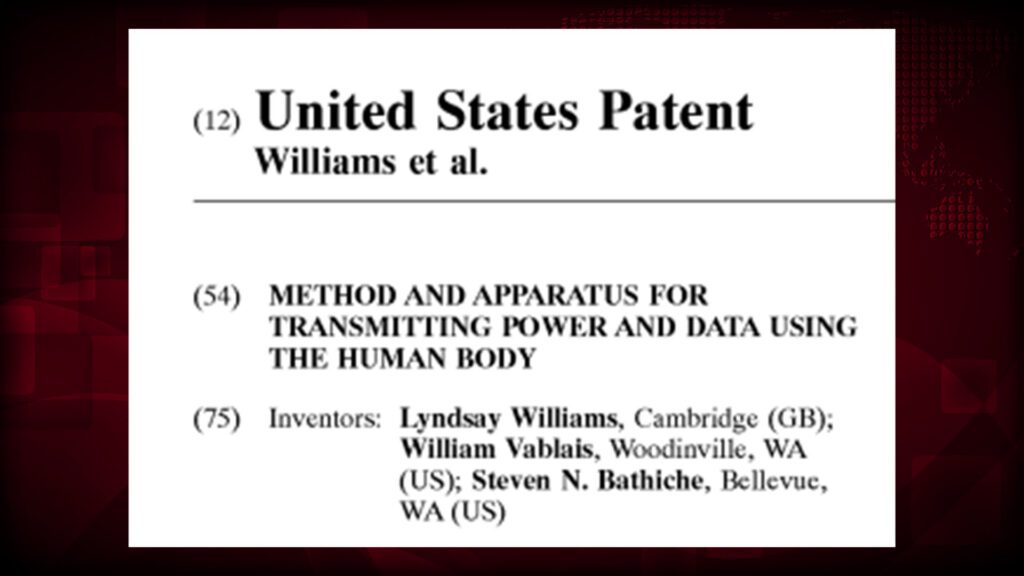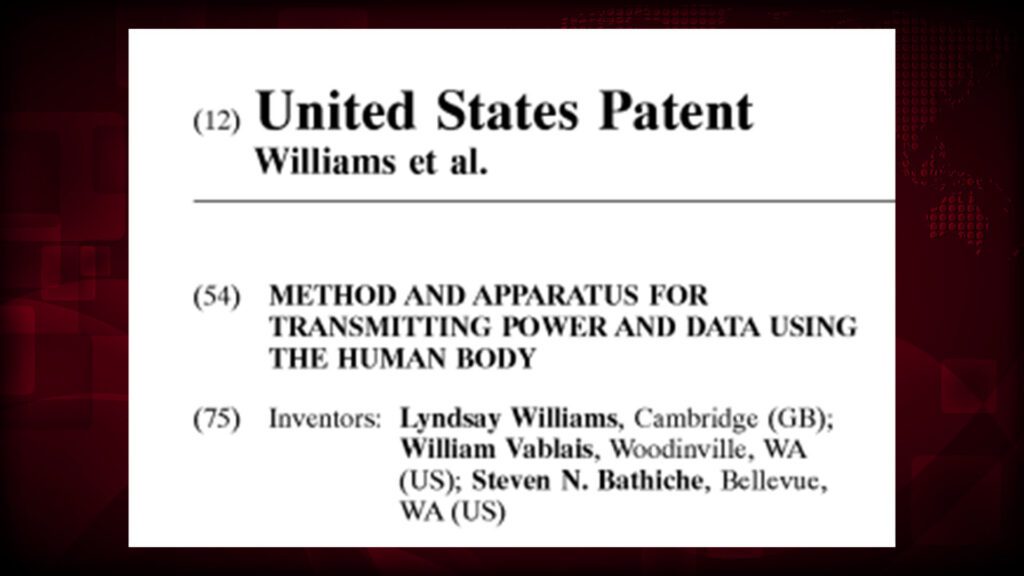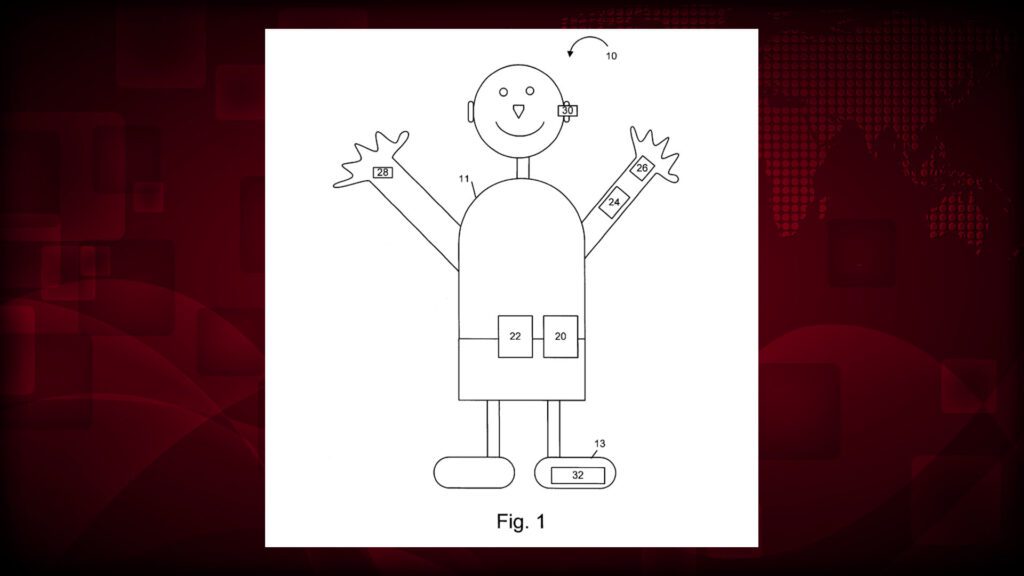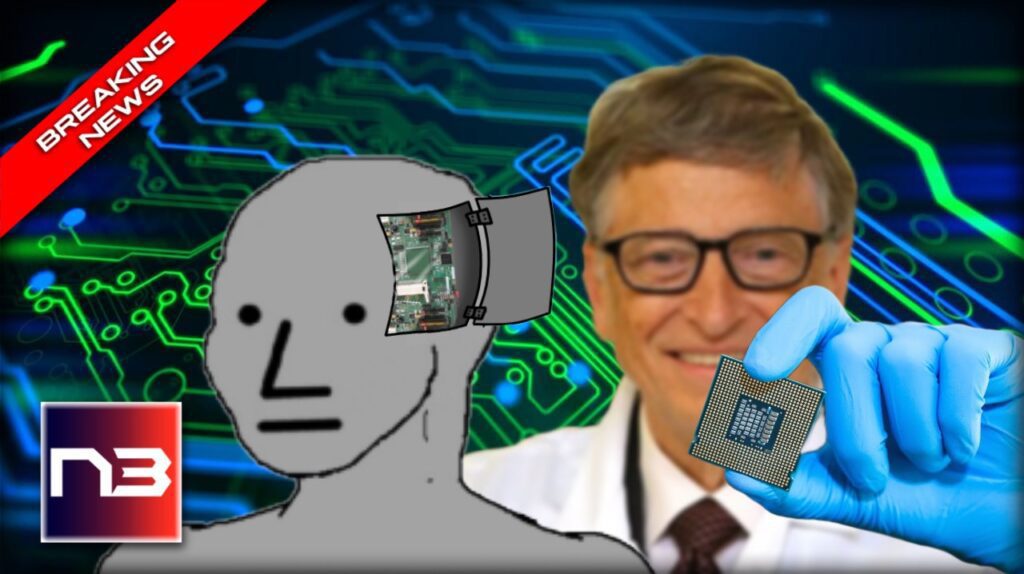Has Bill Gates found a way to take over the world? It looks like it, with a patent recently granted to Gates awarding him “exclusive rights” to computerize human bodies and use them as local wireless networks. This curiously alarming venture has many asking what Gates has up his sleeves this time and raising eyebrows about whether Gates’ next evil scheme could be dominating humanity. As the details of this patent slowly unravel, it is safe to say that Gates is proving, once again, that he intends to leave no stone unturned when it comes to advancing technology and asserting power over humans.
It looks like Gates has been at it again: he’s developed a way to use the human body as a computer network. Who knew that the human body was capable of such things?




Not only is Gates able to capitalize on these new developments with 21st century technology – Microsoft has been granted exclusive rights through patent number 6,754,472 to do just that!
Despite Microsoft’s uncharacteristically coyness about exactly what it may be planning, the company envisions using the human skin’s conductive properties to link a variety of electronic devices around the body, from smart phones to microphones.
Civil liberties groups have expressed massive outrage at the thought of Bill Gates being able to patent the human body. Jim Thomas from the ETC group firmly believes that body parts should never be patentable, and raises further questions as to whether individuals will have any say about refusing this technology if it is used for tracking devices.
Yuval Noah Harari, who is also Klaus Schwab’s right hand man, explains that now, instead of god designing life, it will be up to the WEF to do so.
He’s also made it clear why Bill Gates’ patent means so much: having been an early mover in computer science he has been using his money so far on educating people on products and services related to it; with a patent on a part of the human body we can expect him to use his influence in this regard to influence even how our bodies are designed and perceived.
Harari, also confirms that individuals will not have any control over refusing this technology.






The Microsoft patent describes, the use of the human body as a conductive medium for power and data distribution by coupling a power source to the human body via a set of electrodes and then connecting peripheral devices to the same electrodes. Modulating the power signals with digital data or other information such as audio signals enables transmission of data wirelessly through the body.


It’s clear that Bill Gates and Yuval Harari aren’t just dabbling with the idea of computerizing their human subjects – they have a real plan. But what exactly is that plan? While Harari has dropped some obvious hints, Gates continues to stay tight-lipped, leaving onlookers guessing as to his intentions. The main question seems to be whether Gates will implement choice in this experiment or if it will be done against the subject’s will. Robert F Kennedy Jr certainly doesn’t agree with the latter option; he believes Gates works with a “God-like willingness” to experiment on the lives of others and has amassed too much power for one individual; enough to make even presidents look inferior. His claim that Gates is treating humans like “guinea pigs” definitely isn’t helping matters either, raising a whole host of new ethical questions.
Bill Gates has done the unthinkable: patenting ways to use the human body as a computer network. That’s right – if Microsoft has their way, our bodies might soon be subjected to their total control as they gain exclusive rights through patents. People from all over the civil liberties groups are speaking out in outrage and alarm at the idea of Bill Gate profiting off of something that should not be commodified or exploited for his personal gain. We must not underestimate who we’re dealing with here – Bill Gates is mad with power, and will stop at nothing until he gets what he wants. Make no mistake, Gates does not have our best interests in heart and we must be cautious going forward.
Let’s continue this conversation, in the comments below.



